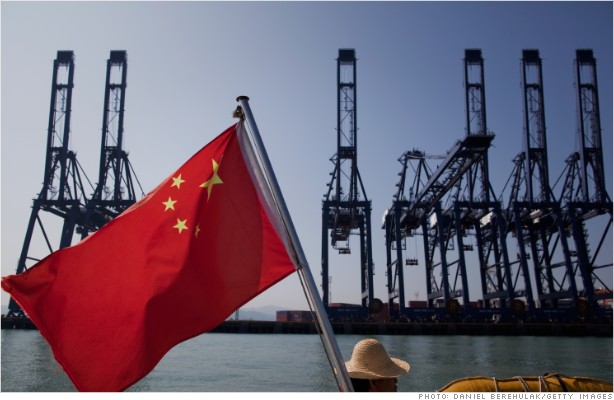The decline of the
U.S. as a lone superpower looms on the horizon. China comes pushing hard.
Sometime between 2015 and 2020, depending on whose analysis you rely on, the
Asian giant will become the world's largest economy.
In a time where
soldiers have given way to traders and territorial invasions to company
takeovers, that means power and control.
It has been a
relatively short journey for China. Its economic evolution has been exponential
in the last three decades. Back in 2003, China was the world's sixth largest
economy. In 2004 it overcame France. In 2006 it was the turn for the United
Kingdom to bite the dust. In 2009 fell Germany. And in 2011 Japan gave away the
silver medal. Now only the US stands in the way to the top.
Today, China leads the
ranking of population by country. But also in the number of internet connections, energy consumption per capita and the country vehicle fleet. These factors -its huge population
and huge domestic market- are what have allowed the country to grow at an
average rate of around 10% annually.
This growth has gone
hand in hand with the Chinese increase in the life quality index. The Chinese
live in general way better now than just a decade ago and have gained in that
time what others countries accomplished over half a century. On average, their
wages have grown too 10% annually since 2006.
Something similar has
happened with the development of the industry. In twenty years it has seen a
fast pace industrial revolution that in Europe and the U.S. lasted for over 200
years. Today it is the largest manufacturer in the world of all kinds of goods.
Contributing to this explosion
was the massive rural migration to the
cities. 120 million
Chinese people have left behind the fields to sit behind machines at factories
in huge new cities with the population of entire
countries.
It also helps its
industry that China controls the production of rare earth metals, essential
elements for all kinds of modern electronic devices, from mobile phones to
washing machines.
The economic boom and
rapid development has brought unique situations. It has extremes that to the
foreign eye cause shock and awe. As the good replicators they are, the Chinese
took what they wanted from the capitalist system -the economy- and what they
wanted from the communist system -the administrative organization- creating a quirky
cocktail, which is unique and sometimes extremely wild.
The communist legacy
makes the Chinese bureaucracy extremely dreaded, especially by expatriates working there. It
is a mixture of communist-era rules and timid liberal openings as difficult to
navigate as a maze. Moreover, that same mixed bureaucracy makes sometimes the capitalist
economy to have to bend around stupid or wild assumptions, creating a result
that is neither capitalist nor communist but a mixture of the worst of both.
A clear example of
this are the nail houses. In the 60s, the communist government could expropriate land at will
paying very low compensation. With the introduction of private property laws in
2007, the owners won some bargaining power.
This led to stupid
situations. Throughout China there are examples of residents who refused to
sell their homes and builders built everything from shopping centers to roads around them. The results are simply surreal in
most of the cases.
However, one of the
things that the Chinese have learned to do extremely well is to protest.
Sometimes their voices are heard, sometimes not.
In recent years, the
environmental issue has been a continuing focus of protests: the depletion of aquifers, pollution of the air or the cancer villages are just a few examples.
Corruption, human rights and civil rights have been at
the center stake as well, this last one a field where the artist Ai Weiwei has been its most prominent spokesman in
recent years.
However, advances in both
environmental issues and human rights and civil rights issues have been timid. The
Chinese government considers both a collateral damage that it is willing to
take if in exchange progress is achieved.
That is not the case
with corruption, an area where Beijing’s government seems to be starting to
consider more seriously.
Inside its own country,
the Chinese government has been concerned to make clear to its own citizens
that the global importance of the country has increased. The architectural mega-projects
like the world's largest dam, the highest altitude railway or one of the longest bridges in the world have put China once more in the
map.
But not only concrete
jungles drive Chinese pride. Since it hosted the Olympic Games in 2008, China
has come to control them in the arena in the
latest edition in London. In addition, part military, part civilian, the
Chinese indigenous space program is a feat that few countries can
boast.
This increasing
prestige has been joined with the increase in living standards. Higher wages
have made the Chinese tourists the biggest spenders outside its borders and, therefore, the most
desirable. But also be the most problematic ones.
China has all the
ingredients to become a great power. It already is one at the regional level.
But doubt remains about whether it can be constructed also as a world
superpower.


 6/23/2013
6/23/2013
 Ehiztari
Ehiztari




 Twitter
Twitter Facebook
Facebook Flickr
Flickr



0 comentarios:
Post a Comment